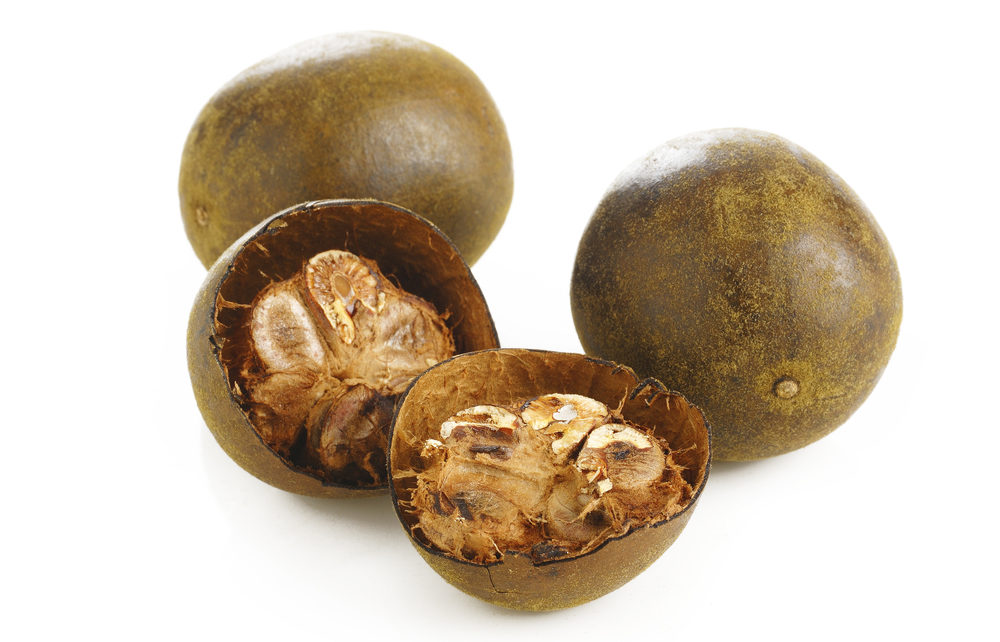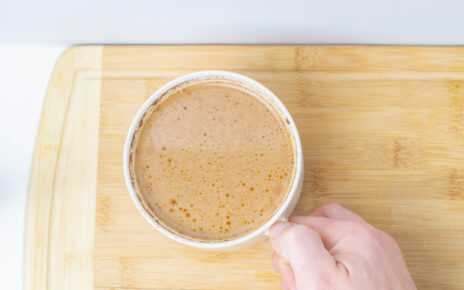What Is Monk Fruit Extract And Is It Keto?
There has been a lot of discussion recently about what is monk fruit extract and if it adheres to keto diet principles, and based on the premise that it was very popular in Traditional Chinese Medicine (TCM), maybe there is something to this. In this article we explore what all the hype is about monk fruit extract and if it can benefit you.
Monk fruit is a sweet, small green “melon” native to parts of China and named after the monks that cultivated the fruit. It has well-established benefits on health, but perhaps more interestingly is its keto-utility. Also known as luo han guo, the fruit is small and round and is brownish red in color. But before we talk about monk fruit and its benefits, we need to understand the origin of this name. The name “monk fruit” has a very interesting history. This fruit is called so because when Buddhist monks from southern China travelled to northern Thailand, they ate this fruit and got a feeling of the sweet taste in their mouths, which at that time they thought was miraculous.
Monk Fruit Extract As A Sweetener
Adapting to a keto lifestyle can be extremely challenging especially to people that have not yet gotten past the days of sweet overexposure, so using effective sugar substitutes can go a long way in helping you keep your sanity. Monk fruit extract excels in this department, since it possesses a sweetness that is approximately 150-200 times as sweet as table sugar, all without calories and no effect on blood glucose levels. This means if you’re a diabetic or even an athlete concerned with the effect of insulin on the body, monk fruit sweetener will not throw you off track. Plus, there aren’t any reported intestinal side-effects from monk fruit usage, such as bloating, gas pressure or diarrhea to name a few. It Is Considered safe for kids and pregnant women, helping display its overall usefulness and put your mind at ease of possible adverse effects.
What Are The Benefits of Monk Fruit?
Not to put these very important benefits on the back burner, but with regards to the keto diet you can see how important its function as a sugar substitute can be. Other very important benefits include:
Weight Loss
One of the positive benefits of sugar restriction and the resulting insulin control is weight loss, which is never a bad thing. This promising fruit can help you achieve weight loss goals in conjunction with an exercise plan and smart diet. But recently, the plant has been gaining notoriety for its ability to burn fat. To understand how the fruit burns fat, you need to understand how your body gains weight. If you eat too many calories and burn fewer than you take in, you store the excess calories as fat. The fruit contains a compound called mogrosides, which suppresses your appetite and reduces the amount of fat produced by your body when you consume a high-fat diet. Monk fruit sugar is also a non-caloric natural sweetener that is said to be 300 times sweeter than sugar. The sweetness in monk fruit comes from the compound mogroside V, which is a potent natural sweetener. But the sweetness of monk fruit is not the only benefit. Some researchers also believe that monk fruit provides the same health benefits as the keto diet, but without the need to follow a restrictive carbohydrate-based diet.
Potent Anti-Inflammatory Action
Contains compounds known as mogrosides, use of the fruit extract can help support optimal health, possibly reducing your risk of cancers and a slew of auto-immune disorders. This was confirmed in a study and cements its role in TCM. With over 50 research studies on the ability of monk fruit to reduce inflammation, it’s no wonder the ketogenic diet community is so excited about it. Most people are familiar with how the body processes sugar, but are they aware of how inflammation adversely affects the body? While inflammation is a natural response of the immune system to harmful foreign substances, the body can also have a healthy response to stress and disease. When this response becomes prolonged, however, your body can suffer from a number of serious health issues. While more human research is needed to determine how effective monk fruit is for inflammatory conditions, there is no doubt that it is much less harmful than many of the synthetic medicines prescribed for inflammation, and that it is far more natural and tastier than many of the anti-inflammatory fruits and spices we use on a regular basis. Our advice? Use it, but also keep in mind that you won’t necessarily find an endorsement from the FDA as supplements and natural products are very loosely regulated.
Monk Fruit Extract Vs Stevia Sweetener
Stevia and monk fruit, both considered sugar substitutes, can be used to sweeten drinks or as an ingredient in recipes. But which is better for you? According to many people, the taste of both stevia and monk fruit are considered to be sweet, but many people find them to have a slight aftertaste. Stevia’s taste tends to be more bitter, while monk fruit is sweeter and more mellow- even characterized as alcohol-like. Monk Fruit contains only 13g of carbs per 100g serving of the sweetener. That’s compared to stevia, which contains around 30g of carbs per 100g serving of the sweetener. In order to make a baking substitute, or powder, from Monk Fruit, you will need around 100g of Monk Fruit to substitute for 120g of stevia. This will yield a powder that is almost twice as sweet. However, if you are looking to substitute monk fruit for sugar, you will need around 30g to substitute for one cup of sugar. They are both natural sweeteners, however, and considered zero calorie, making them perfect alternatives to table sugar and artificial sweeteners. Precautions Being a member of the gourd family, if you possess allergies to pumpkin, cucumbers, or even other melons, there is a possibility that the extract may not be suitable for you.
Can Monk Fruit And Other Lcss Cause Weight Gain?
The answer to this question is yes. Low carbohydrate sugar substitutes (lcss) can cause weight gain, like anything else taken in excess. This may be more difficult with monk fruit, however, as its zero-calorie designation means you would need to consume an ungodly amount to tether on the brink of caloric surplus.
It is an excellent low calorie sweetener for maintaining an ideal weight.
Do Monk Fruit Sweeteners Affect Blood Sugar Control?
No, monk fruit sweeteners do not adversely affect your blood glucose control. Monk fruit for blood sugar is becoming more and more important. This is especially true for people with diabetes. This is because monk fruit can contribute to healthy blood sugar levels as it is shown to lower things like hemoglobin A1C, and supporting insulin function. The mogrosides contained in the fruit may also have a minor effect on stimulating insulin production, although the magnitude of this effect is pretty small.
In Summary
Monk fruit extract can definitely be considered a keto fruit , based on the fact that it passes the litmus test for what a keto-friendly supplement should be.
Fresh monk fruit may be good, but you will have a hard time maintaining your supply all year round. Instead, go for liquid monk fruit as your alternative sweetener for liquid beverages, and use the powder for baking or cooking.
Being classified as a non nutritive sweetener is also positive and makes it outperform many others with a high number of net carbs.
Studies have shown its real promise to date, but there is always room for further confirmatory findings before it truly becomes mainstream.



